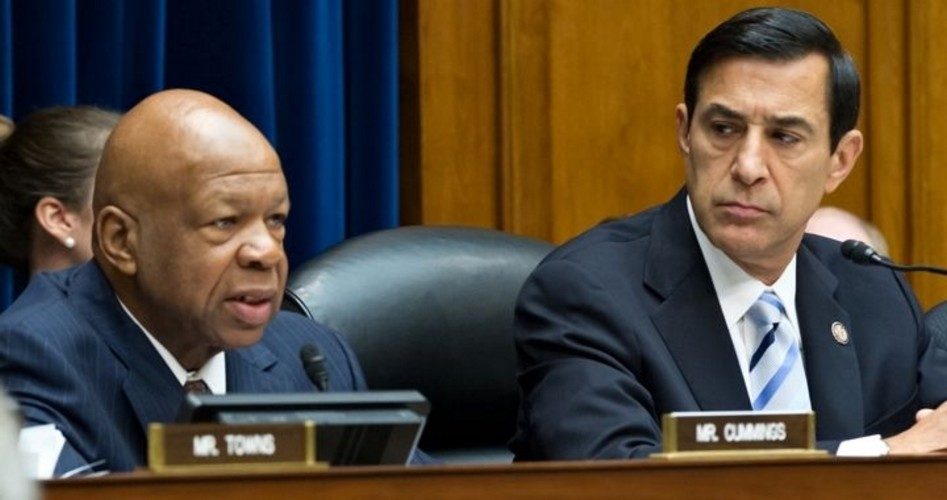
The House Oversight and Government Reform Committee voted along partisan lines to bring contempt charges against Attorney General Eric Holder June 20 by a vote of 23-17 in response to the Attorney General’s refusal to conform with subpoenas related to the “Fast and Furious” gun-walking scandal. The Obama White House had claimed “executive privilege” over the documents earlier in the morning.
The documents relate to what top White House officials knew about the scandal that resulted in 2,000 weapons being given to Mexican drug gangs by Bureau of Alcohol, Tobacco and Firearms agents. Republicans assert that White House officials knew about the scandal, which resulted in the death of Border Patrol agent Brian Terry and several hundred Mexican police, politicians and civilians.
Incredibly, even after the Obama White House invoked executive privilege to prevent turning over the documents to the House committee, Democrats argued that the Obama administration was trying to fulfill the House subpoena. Ranking Democrat Elijah Cummings of Maryland told CBS News that the Obama Justice Department had made a “good faith offer,” but the offer was nothing more than an offer to turn over unspecified documents in exchange for the committee unconditionally dropping the contempt vote. Rep. Gerry Connolly (D-Virginia) called the vote a “kangaroo court,” and called instead for gun control legislation against citizens (which is not the jurisdiction of the committee anyway).
Deputy Attorney General James Cole claimed in a letter to Committee Chairman Darrell Issa that “Although we are deeply disappointed that the Committee appears intent on proceeding with a contempt vote, the Department remains willing to work with the Committee to reach a mutually satisfactory resolution of the outstanding issues.” The letter was followed up by a brief meeting during the morning of June 20 between Issa, Cole, and Holder that produced no agreement.
Noting that his committee had patiently waited seven months for the documents, Issa sarcastically tweeted after meeting with Holder and Cole that “I have no doubt if @TheJusticeDept subpoenaed documents from someone, they would wait 7 months.”
Issa summed up the issue in a letter to Holder May 18: “While we recognize that the Department has provided some documents in response to some aspects of the October 11, 2011, subpoena from the Chairman of the Oversight & Government Reform Committee (“the Committee”), two key questions remain unanswered: first, who on your leadership team was informed of the reckless tactics used in Fast & Furious prior to Agent Terry’s murder; and, second, did your leadership team mislead or misinform Congress in response to a Congressional subpoena?” That Holder misinformed the congressional committee is now a matter of public record. He did. But did Holder do so willingly, or without any knowledge of what his subordinates were doing? That’s the unanswered question.
The Oversight and Government Reform Committee was seeking to “focus on the Justice Department’s refusal to turn over documents from after February 4, 2011 — the date the Justice Department first denied accusations that reckless conduct occurred in Fast and Furious. The Obama Administration has not asserted Executive Privilege or any other valid privilege over these materials. They pertain to the Justice Department’s management, the treatment of whistleblowers, and why it took the Department nearly a year to retract false denials of reckless tactics.”
In seeking to get the executive branch to turn over government documents, the House committee is on solid constitutional ground, while the White House has no grounds for refusing the documents. Article II of the U.S. Constitution requires the executive branch to give information to the Congress, saying of the President that “He shall from time to time give to the Congress Information of the State of the Union…. [and] he shall take Care that the Laws be faithfully executed.”
The Constitution is silent on any question of “executive privilege,” a concept invented by President Eisenhower to stonewall the investigations of communism by Senator Joseph McCarthy in the 1950s. Executive privilege was also roundly criticized by President Obama himself when he was a sitting senator.
The “Fast and Furious” cover-up is perhaps the first presidential scandal that smacks of the same issues that destroyed the Nixon presidency. The Nixon administration complained that congressional subpoenas of White House deliberations on the Watergate break-in were private discussions, and used this as a means of hiding misdeeds. The White House has clearly embarked on using this same Nixon strategy.
Photo: The House Oversight and Government Reform Committee, led by Chairman Darrell Issa (R-Calif., right) considers whether to hold Attorney General Eric Holder in contempt of Congress, on Capitol Hill in Washington, June 20, 2012. Rep. Elijah Cummings, (D-Md.) the ranking member, speaks at left: AP Images



